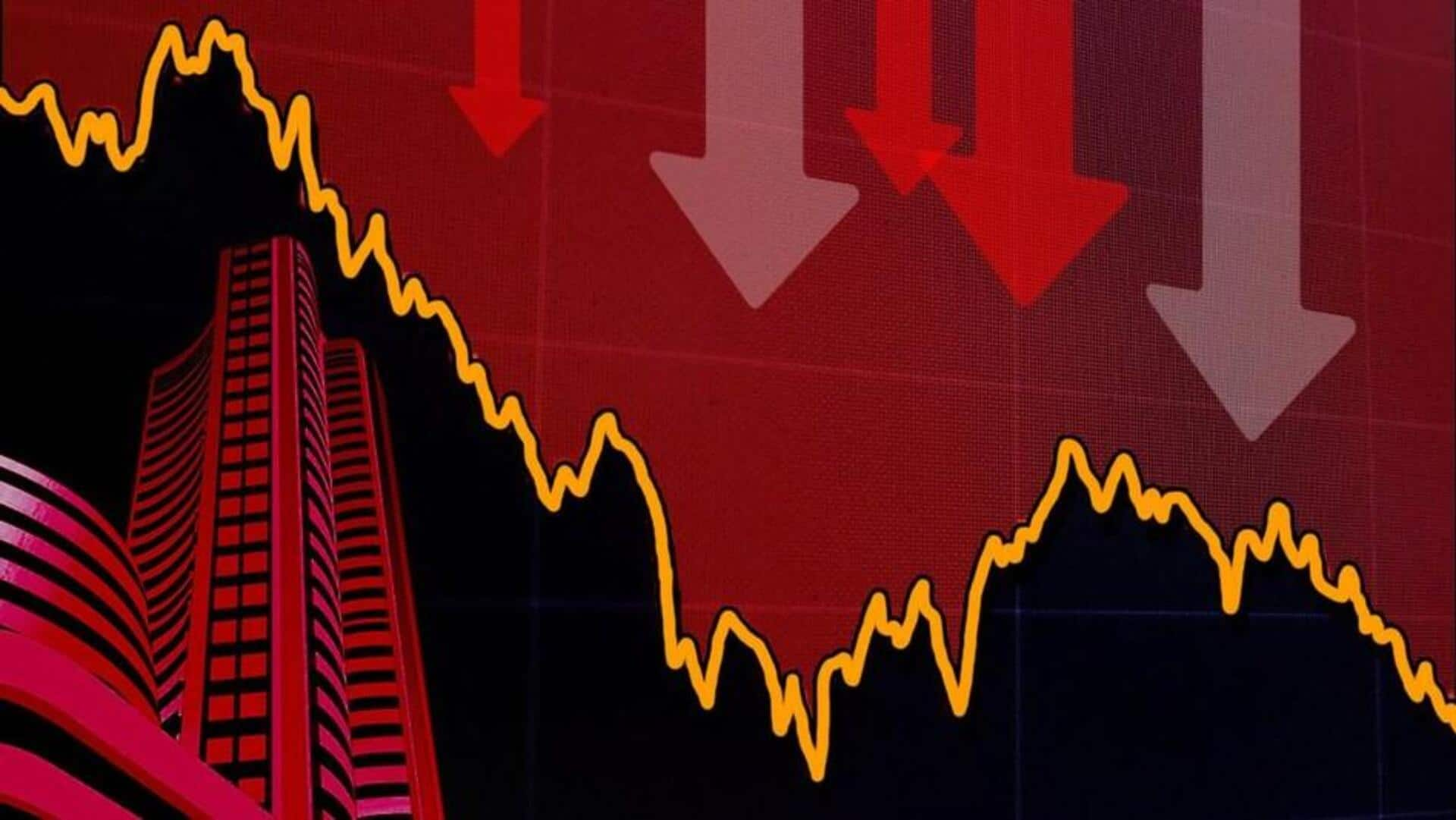
3,000-point drop in 9 sessions: Has Sensex entered bear market?
What's the story
The Indian stock market is witnessing extreme volatility at the moment, with the Sensex plummeting a whopping 3,000 points over the last nine consecutive sessions.
The Nifty is also witnessing its longest losing streak since 2019 when it had declined 5% over nine sessions from April 30-May 13.
The fall has mostly affected small and micro-cap stocks, which remain stuck in a bear market. But what about Sensex—has it also followed suit?
'Unbearable' zone
What is a bear market?
A bear market is a term used to describe a period in which the prices of assets— stocks, bonds, or commodities—are falling or are expected to fall.
It typically refers to a market where prices have dropped by 20% or more from recent highs, and the overall sentiment is pessimistic.
Investors become more cautious, and negative news can drive down stock prices.
Bear markets are often associated with economic downturns, but they can also occur independently of the broader economy.
Market slump
Nifty stocks witness significant decline
The ongoing market correction has witnessed Nifty stocks crash by as much as 42% from their highs, with Tata Motors being the worst hit.
Ashi Anand, founder and CEO of IME Capital, said despite a 20% fall in small caps, valuations in this space still aren't very attractive.
He said they could be termed fairly expensive, hinting this market correction could continue.
Ongoing correction
Market insiders predict continued correction
Echoing the same sentiment, Sanjeev Prasad from Kotak Institutional Equities said that despite the sharp correction in the last few months, most sectors and stocks are still trading at rich valuations.
He also warned of potential earnings downgrades and higher global interest rates for a longer period.
All these factors could make the Indian market remain lackluster.
Investment withdrawal
FIIs withdraw over ₹1 lakh crore in 2025
Foreign Institutional Investors (FIIs) have pulled out more than ₹1 lakh crore from Dalal Street this year, amid a tough global investment environment for emerging markets.
Analysts at Motilal Oswal have warned that FY26 corporate earnings expectations may still be too high given the current macro-micro backdrop, and could face further downgrades.
This comes after Nifty's single-digit PAT growth for three straight quarters since June 2020, its highest earnings downgrade ratio in nearly five years.
Nervous territory
Has Sensex entered the bear market?
Earlier today, the Sensex was trading at approximately 75,350 points. The 52-week high for the index was 85,978.25 points, reached on September 27, 2024.
This represents a decline of about 12.3% from its peak. Since a bear market is typically defined by a 20% drop from recent highs, the Sensex has not yet entered bear territory.
Recovery forecast
Market recovery expected in FY26
Despite the ongoing market slump, Emkay Global expects a recovery from Q1 of FY26 as earnings stabilize and global stresses ease.
The firm retained its December 2025 Nifty target of 25,000 and recommends the market becomes an attractive buy at 22,500 Nifty.
This is premised on expectations that worries over Trump tariffs will recede, earnings downgrades will largely be done with Nifty FY26 EPS growth at ~12-13%, and signs of discretionary consumption demand recovery will start emerging.